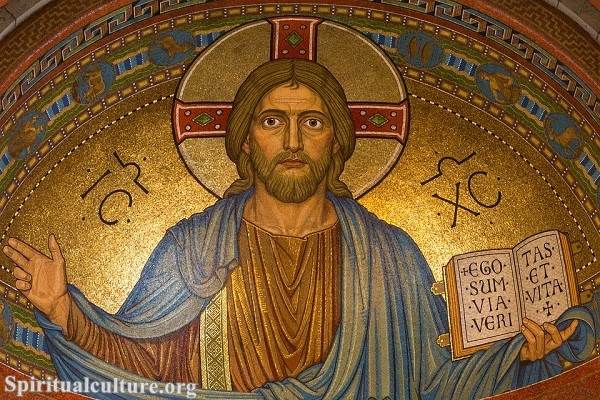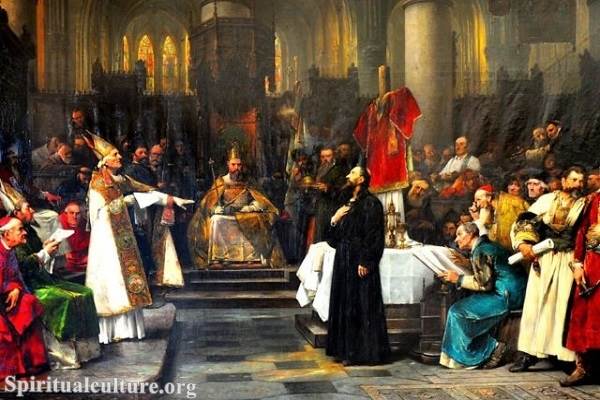The story of Protestant Christianity is deeply infused with the active presence of the Holy Spirit. From the trembling voices of reformers to the quiet prayers of everyday believers, the Spirit is seen not as a distant force but as the divine breath moving within, around, and through the life of faith.
As Spiritual Culture, we invite you into a sacred reflection: What does it truly mean to live by the Spirit in Protestant thought? Why is the Holy Spirit considered essential — not just theologically, but practically, intimately, every day?
This article explores the profound role the Holy Spirit plays in Protestant life — from inner renewal to church vitality, from personal conviction to global mission. Let us journey together into this wind of grace that never ceases to blow.
The Holy Spirit: The Protestant Understanding
Rooted in Scripture
In Protestant theology, the authority of Scripture is central — and so is the Holy Spirit who inspired it.
“All Scripture is God-breathed…” (2 Timothy 3:16)
The Holy Spirit is understood as the third Person of the Trinity — fully God, co-equal with the Father and the Son — not merely a power or influence. Protestants believe the Spirit was active in creation, in Christ’s earthly ministry, and is now at work in the hearts of all believers.
The Reformation Emphasis
The Reformers, particularly Martin Luther and John Calvin, emphasized the Spirit’s role in:
- Illuminating Scripture
- Convicting hearts of sin and grace
- Empowering believers to live holy lives
Calvin wrote extensively about the Spirit as the “internal teacher” — the One who makes Christ real to the heart.
The Spirit and Salvation: The Birth of New Life
Conviction and Conversion
No one comes to Christ apart from the Spirit’s work. In Protestant belief, the Spirit is the One who awakens the soul to its need for grace.
“And when he comes, he will convict the world concerning sin and righteousness and judgment…” (John 16:8)
This conviction isn’t condemnation — it’s a gracious summons to turn toward the Cross. The Spirit leads a person from death to life.
Regeneration: Being Born Again
Jesus told Nicodemus:
“Unless one is born of water and the Spirit, he cannot enter the kingdom of God.” (John 3:5)
Protestants affirm that to be a Christian is to be “born again” — not merely improved but made new by the indwelling Holy Spirit. This inner renewal is not a human achievement, but a divine miracle.
The Spirit as Indwelling Presence: God Within
Personal Relationship with God
The Holy Spirit doesn’t merely touch the believer; He dwells within.
“Do you not know that you are God’s temple and that God’s Spirit dwells in you?” (1 Corinthians 3:16)
In Protestant spirituality, this is one of the most personal and transformative truths — that God is not only with us but in us.
Daily Communion
Through the Spirit, the believer experiences:
- Comfort in suffering
- Guidance in decisions
- Assurance in doubt
- Strength in weakness
The Spirit is not passive. He prays with and for the believer:
“The Spirit himself intercedes for us with groanings too deep for words.” (Romans 8:26)
This is divine intimacy — God participating in our inner life, our longings, our prayers.
The Spirit and Scripture: Guiding into Truth
The Illuminator of the Word
While Protestants hold the Bible as the final authority, they equally emphasize the Spirit as the One who helps us understand it.
“When the Spirit of truth comes, he will guide you into all the truth…” (John 16:13)
Reading Scripture is never just an intellectual act — it’s a spiritual encounter. The Spirit makes the Word alive, convicting, encouraging, and directing.
Discernment and Wisdom
The Spirit guards against false interpretation, reminding the Church of Christ’s words and aligning the heart with God’s will. In Protestant life, this often manifests in:
- Prayerful Bible reading
- Dependence on the Spirit’s insight
- Discernment in moral or doctrinal confusion
The Spirit and Sanctification: Growing in Holiness
A Lifelong Journey
Sanctification — becoming more like Christ — is not self-improvement. It is Spirit-led transformation.
“Walk by the Spirit, and you will not gratify the desires of the flesh.” (Galatians 5:16)
The Spirit produces the “fruit” of godly character:
“Love, joy, peace, patience, kindness, goodness, faithfulness, gentleness, self-control…” (Galatians 5:22–23)
This fruit isn’t manufactured through effort alone — it ripens through abiding in the Spirit.
Freedom and Discipline
Protestants celebrate the paradox: the Spirit gives both freedom and discipline. Freedom from the power of sin, and discipline to pursue righteousness.
As the Apostle Paul says:
“For where the Spirit of the Lord is, there is freedom.” (2 Corinthians 3:17)
But this freedom isn’t lawlessness — it’s liberty to love, serve, and grow in Christ.
The Spirit and the Church: Unity and Power
Spiritual Gifts for the Body
In Protestant churches, the Holy Spirit is recognized as the giver of spiritual gifts (charismata):
“There are different kinds of gifts, but the same Spirit…” (1 Corinthians 12:4)
These include:
- Teaching
- Encouragement
- Healing
- Hospitality
- Prophecy
- Leadership
- Mercy
The Spirit equips believers to serve, edify, and build up the Church — never for personal glory, but for the glory of God and the good of others.
Unity Across Differences
The Spirit unites believers across:
- Cultures
- Languages
- Traditions
- Denominations
Even within Protestantism — diverse as it is — the Holy Spirit is seen as the bond of peace:
“Make every effort to keep the unity of the Spirit through the bond of peace.” (Ephesians 4:3)
The Spirit and Mission: Empowered Witness
Evangelism with Power
From the earliest days, Protestant missions have leaned on the Spirit’s power. Just as the apostles were empowered at Pentecost, so modern-day believers are emboldened:
“You will receive power when the Holy Spirit has come upon you, and you will be my witnesses…” (Acts 1:8)
The Spirit gives:
- Words to speak
- Love to embody
- Courage to go
Whether preaching in cities or serving in hidden places, the Spirit is the unseen partner in every gospel encounter.
Global Movement
The explosive growth of Protestant Christianity — especially in the Global South — is often attributed to Spirit-filled revival. In places where institutions are weak, the Spirit moves with strength, drawing hearts to Christ in personal and supernatural ways.
The Spirit in Everyday Life
Decision-Making and Conscience
Protestants speak often of being “led by the Spirit” — in both major life choices and ordinary decisions. While this varies between traditions (some more charismatic, others more cautious), a common thread remains:
- The Spirit helps believers align their lives with God’s will
- He speaks peace or warning in the conscience
- He brings clarity through Scripture, prayer, and community
Spiritual Practices
Many Protestants engage in daily habits that cultivate awareness of the Spirit’s presence:
- Prayer and silence
- Journaling spiritual impressions
- Confessing sin
- Singing with sincerity
- Listening for conviction or encouragement
The goal is not mystical escape — but Spirit-empowered living in the real world.
Reflect and Reimagine
The role of the Holy Spirit in Protestant life is not peripheral — it is central, continual, and catalytic. He is the One who brings us to Christ, shapes us like Christ, and sends us for Christ.
He is not a vague idea but a living Person — the very presence of God in the believer’s life. In every season — through trials, joys, doubts, and dreams — the Spirit remains the Comforter, Guide, Teacher, and Friend.
So let us ask:
- Are we listening to the Spirit’s whisper?
- Are we bearing His fruit?
- Are we stepping into the freedom and calling He offers?
To live by the Spirit is to live awake — to grace, to truth, to the pulse of eternity in the everyday.
Come, Holy Spirit. Breathe on us again.



